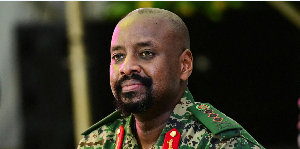Opinions of Wednesday, 1 May 2024
Columnist: Jones Ofori-Attah
Irony of security in Ghana
Security in Ghana is currently facing significant challenges, portraying a state of vulnerability and fragility rather than strength and assurance. The recent incident where a soldier was shot dead at Kosoa Millennium City in the presence of the Police highlights the alarming state of security in the country, reflecting widespread indiscipline.
One striking issue contributing to this security dilemma is the restriction imposed on security personnel, trained in firearm handling, from possessing personal firearms. This contradicts not only the constitutional rights enshrined in the 1992 Constitution of Ghana but also fundamental rights recognized globally for self-defence and preservation.
The irony deepens as civilians are allowed to carry firearms while trained security personnel are deprived of even personal basic self-defence tools like pepper sprays. The situation worsens as soldiers are cautioned against acquiring personal safety tools like stun guns, despite the increasing proliferation of firearms among civilians.
The Executive Director of the Bureau of Public Safety, Nana Yaw Akwada, in 2021 disclosed a concerning statistic of over 2.4 million firearms in private hands in Ghana, indicating a rise in weapons circulation. This poses a critical question on how security forces can effectively protect citizens when their access to necessary tools is restricted to duty-bound issuance only.
The recent surge in attacks on soldiers underscores the urgent need for a re-evaluation of security protocols. The tragic killing of Private Sherif Imoro in Ashaiman exemplifies how a personal firearm could have potentially averted such a loss of life.
Soldiers, who symbolize authority and protection, find themselves in a paradoxical situation where their ability to defend themselves and others is severely compromised. The lack of personal firearms and essential defence accessories further exacerbates their vulnerability in the face of escalating security threats.
In light of these challenges, it is imperative for security authorities to revisit policies that hinder the effective protection of security personnel and, by extension, the general populace. Ensuring that those entrusted with safeguarding the nation have the necessary tools and resources for self-defence is paramount to enhancing overall security in Ghana.
Jones Ofori-Attah is External Affairs Coordinator, Elijeko Foundation
Email: oforiatta.jones@yahoo.com














